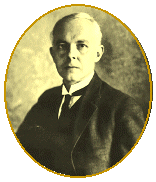

MIDI Files | Recommended Recordings | Books and Printed Music
Biography
Bartуk was born in 1881 to a musical family living in Nagyszentmiklуs, Hungary. His mother gave him his first piano lessons.
In 1894 at Pozsony (Bratislava) studied with the conductor and composer Lбszlo Erkel until 1899 when he entered the Budapest Royal Academy of Music.In 1902 he heard a performance of Richard Strauss's "Also sprach Zarathustra", which stimulated his powers of composition to such a degree, that he wrote his nationalistic tone-poem "Kossuth" in 1903. By this time he was travelling abroad as solo pianist, performing the works of Liszt and other keyboard virtuosi.
In 1905 he began the systematic exploration of Hungarian peasant music, and in 1906, with his fellow composer Kodбly, published a collection of folk-songs.
In 1907 Bartуk became professor of piano at the Budapest Royal Academy of Music.
For the next decade, while his music was badly received in his own country, continued systematic collection of folk-music.
In 1917 his ballet "The Wooden Prince" was sucessfully produced in Budapest and led to the staging in the following year of his opera, the "Duke Bluebeard's Castle".
His first 2 violin sonatas were performed in London in 1922-23. In 1923 he composed the "Dance Suite".During the 1920-s he resumed his career as pianist, and composed several works for his own use. In 1934 he was given a salaried post in the Hungarian Academy of Sciences, in order that he could prepare his collection of folk-songs for publication.
In 1940 due to political developments in Hungary, he emigrated to the US. This was not a happy time for him; his health began to fail, his music was infrequently performed, and there was little demand for his services as a pianist. Nevertheless, the Koussevitzky Foundation commissioned the "Concerto for Orchestra", Yehudi Menuhin a solo violin sonata, and William Primrose a viola concerto.
In 1945 he died of leukemia in New York.Bartуk's music is a highly individual blend of elements transformed from his own admirations : Liszt, Richard Strauss, Debussy, Stravinsky and folk-music. Perhaps his greatest achievement lies in his 6 string quartets, in which formal symmetry and thematic unity were succesfully related. But the melodic fertility and rhythmical vitality of all his music have ensured its consistent success since his death.